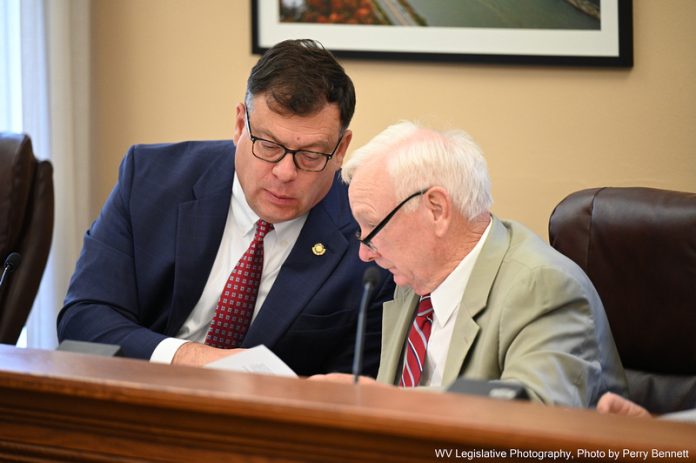The Legislative Oversight Committee on Education Accountability met on Sunday, August 6, 2023. The committee heard an update on Alderson Broaddus (AB) University.
The Higher Education Policy Commission (HEPC) and the Community and Technical College Council (CTCC) can revoke authorization on an educational institution’s ability to confer degrees. AB’s finances have been a concern for years. Just last year, the then-president believed the board would be voting to close the institution in the spring, with an allowance for physician assistant student to complete their requirements to graduate. However, a new board and president were elected, and the new board decided to stay open.
The board was expecting a $1.1 million tax credit from the IRS and donations to help with cash flow. However, these funds were never received, and the cash flow was in the negative. The institution owes money to the City of Philippi, Sodexo (food vendor), and others. It had taken out a $27 million loan with the USDA. Donations were requested for payroll payments to be made. AB’s budget is also entirely based on enrollment. It seemed that the enrollment projections would not be met. Another financial issue was that student-athletes at AB received reduced tuition at almost fifty percent and 80 percent of the students were athletes. With poor finances, it was concluded that the institution could not be opened for another semester. The HEPC voted to revoke AB’s ability to confer degrees in West Virginia. The institution may continue to teach students who will graduate in December. Currently, the HEPC is trying to determine what fees and tuition students have already paid.
Other higher education institutions have stepped up to accept students. Currently, the HEPC is trying to place the first-year physician assistance students who were displaced by revocation. All institutions that have PA programs are full and have not been granted expansion from their accreditors to allow more students in the programs. AB’s transcripts are part of a third-party system for all private school transcripts, so students will still have access to them. The transcripts are being moved under Wesleyan.
The Chancellor expressed concern about not having an audit for AB in FY22. Therefore, the last audit performed was in FY21. She believes it is crucial to look at all private and public institutions’ finances to prevent this from happening again.
The Committee also heard about a couple of WVBE Policies.
WVBE Policy 5310 – Performance Evaluation of Professional Personnel and Athletic Coaches- implements House Bill 2597. The policy establishes a uniform process for the evaluation of employment performance for professional personnel and athletic coaches.
WVBE Policy 2512 – Tired System of Support for Early Literacy and Numeracy- implements House Bill 3035. The policy establishes county standards of transformative support systems for students to meet grade-level proficiency in reading by the end of third grade with comprehensive support for early literacy in Pre-K through third grade. The policy focuses on schools and communities working together to remove barriers and expand opportunities in the early learning years. West Virginia’s Campaign for Grade Level Reading is a comprehensive, systematic approach to closing the reading achievement gap by third grade targeting school readiness, chronic absence, extended learning, and an intervention framework.
This policy is a part of the Third Grade Success Act. Other policies are being reviewed and revised. The department is receiving $5.7 million for early literacy to be allocated to the counties. The department also partners with the June Harless Center to provide reading specialists to schools in the state. Regional reading specialists are expected to be provided to help in other areas of the state. The department is allocating over $300,00 for math. Screeners are chosen by a ranking system.
The department just held two Invest Conferences, which are meetings with three days of the science of reading and numeracy for K through 12. In the Fall, regional training will take place for those who couldn’t attend the Invest Conferences to provide updated training on literacy, dyslexia, and dyscalculia.

